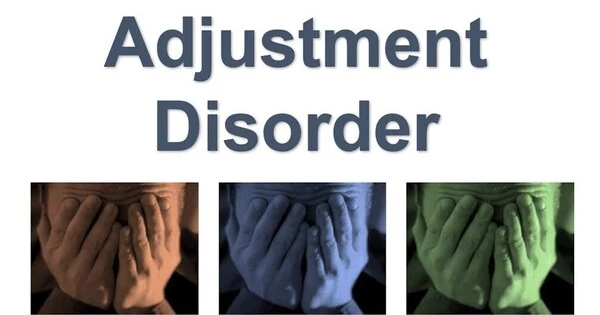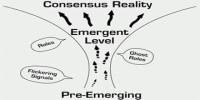An adjustment disorder is a person’s emotional or behavioral response to a stressful event or change in their life. It is a dysfunctional reaction to a psychosocial stressor. It is considered a mental disorder. The maladaptive response is typically characterized by otherwise normal emotional and behavioral reactions that manifest more intensely than usual (when contextual and cultural factors are considered), resulting in marked distress, preoccupation with the stressor and its consequences, and functional impairment. Within three months of the event or change, the reaction is considered an unhealthy or excessive response.
A family move, the parents’ divorce or separation, the loss of a pet, or the birth of a sibling can all be stressful events or changes in your child’s or adolescent’s life. An adjustment response may result from a sudden illness or a restriction in your child’s life due to chronic illness.
The diagnosis of adjustment disorder is fairly common. Adult prevalence estimates range from 5% to 21% over their lifetime. Adult females are diagnosed twice as frequently as males. Girls and boys are equally likely to be diagnosed with an adjustment disorder as children and adolescents.
Causes
An adjustment disorder is a reaction to an event. There is no single direct cause between the stressful event and the reaction. Children and adolescents differ in temperament, past experiences, vulnerability, and coping skills. Their developmental stage and ability to deal with specific needs related to stress may influence their reaction. Stressors also differ in terms of how long they last, how strong they are, and what effect they have. There is no evidence to suggest a specific factor that causes adjustment disorders.
Signs and symptoms
Sadness, hopelessness, lack of enjoyment, crying spells, nervousness, anxiety, desperation, feeling overwhelmed and suicidal thoughts, poor performance in school/work, and so on are some emotional symptoms of adjustment disorder.
Mild depressive symptoms, anxiety symptoms, and traumatic stress symptoms, or a combination of the three, are common features of adjustment disorder. According to the DSM-5, there are six types of Adjustment disorder, which are distinguished by the following predominant symptoms: depressed mood, anxiety, mixed depression and anxiety, disturbance of conduct, mixed disturbance of emotions and conduct, and unspecified. However, the criteria for these symptoms are not specified in greater detail.
Depending on whether it lasts more than six months or less, adjustment disorder can be acute or chronic. Adjustment disorder may be classified as acute if it lasts less than six months, according to the DSM-5. It may be considered chronic if it lasts longer than six months. Furthermore, the symptoms cannot last more than six months after the stressor(s) or their consequences have ended. The stress-related disturbance, on the other hand, does not only exist as an exacerbation of a pre-existing mental disorder.
In contrast to major depression, the disorder is caused by an external stressor and usually resolves once the individual is able to adapt to the situation. The condition is different from anxiety disorder, which lacks the presence of a stressor, or post-traumatic stress disorder and acute stress disorder, which usually are associated with a more intense stressor.
Suicidal behavior is prominent among people with Adjustment disorder of all ages, and up to one-fifth of adolescent suicide victims may have an adjustment disorder. Bronish and Hecht (1989) found that 70% of a series of patients with Adjustment disorder attempted suicide immediately before their index admission and they remitted faster than a comparison group with major depression.
Prevention
There are no surefire ways to avoid adjustment disorders. However, learning healthy coping skills and becoming resilient may be beneficial during times of high stress. If you are anticipating a stressful situation, such as a move or retirement, call on your inner strength, increase your healthy habits, and mobilize your social supports ahead of time. Remind yourself that this is usually a time-limited situation and that you will be able to get through it. Consider consulting with your doctor or a mental health professional to discuss healthy stress management techniques.
















